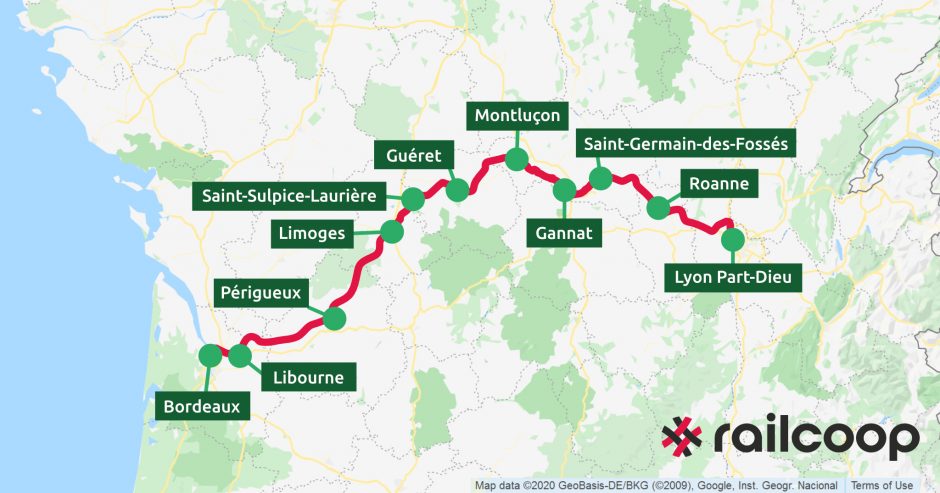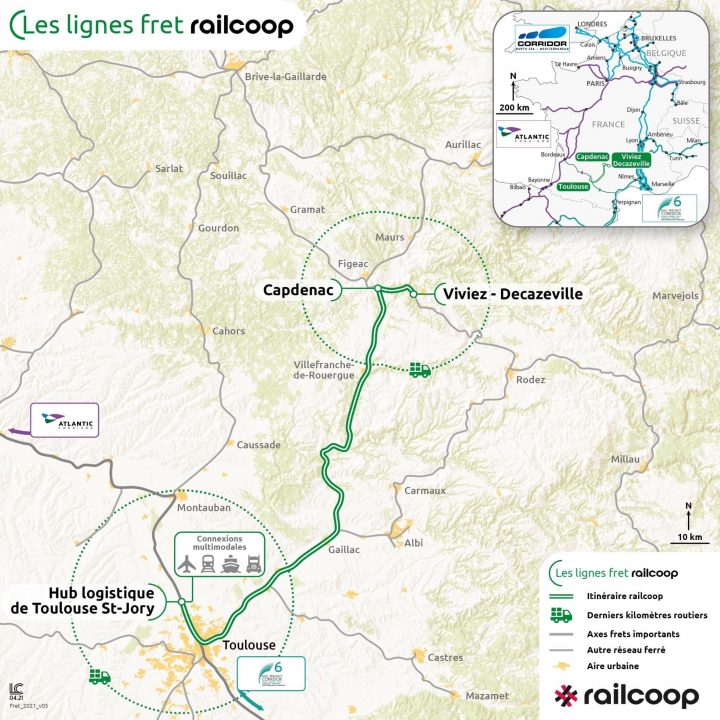France’s first rail co-operative could be running freight trains later this year, with a passenger service between Bordeaux and Lyon due to follow in 2022.
Set up in 2019, Railcoop is a co-operative society of collective interest (SCIC) with over 8,000 member owners, that will run passenger and freight trains without public subsidies. As a SCIC – also known as a general interest co-operative – Railcoop will have to direct 57.5% of its surpluses to its reserves.
The project is run by an operational group of 15 people with input from individual members, who get involved in discussions about how to advance the initiative. Member engagement takes place via 12 discussion circles, two of which are regional and 10 thematic.

In March the co-op reached the minimum threshold of €1.5m capital set by the state to become a private operator. This was the last prerequisite before it could submit its licence file railway to the ministry in charge of transport. Railcoop is also working on obtaining its security certificate from the EPSF (Établissement Public de Sécurité Ferroviaire), the French regulator responsible for the rail system’s coherence and safety.
The co-op was set up in response to the liberalisation of the rail market in France in 2020. The initial group involved in setting it up included people who were involved in the railway sector, local development and sustainability initiatives.
They decided to go for the co-op model to enable local people, companies, associations and local authorities to develop the project together.
To become a member of Railcoop, individuals must pay a minimum membership fee of €100. For local authorities located on a freight or passenger line the minimum membership fee is set at 50 cents per inhabitant.
“Through this model, Railcoop brings together citizens, companies, communities and more broadly any natural or legal person sharing a common objective: to design rail services adapted to the needs of all regions,” said Paul Colin, a spokesperson for the co-op.
“Railcoop’s vision of the co-operative model is that it brings together and creates a service that meets a need, including anyone who wants to participate in this adventure. Each person, regardless of the number of shares they invest in Railcoop, counts as one vote in their college in the General Assembly. The model we are using can be seen as an alternative to the more traditional model, at a time when we are going through a health crisis and the ecological question is more and more pressing. Railcoop’s positioning allows everyone to get involved by promoting a model with ecological, economic, social and democratic values.”

Mr Colin added that the SCIC model was chosen as the legal framework most conducive to the participation of all.
Railcoop says its goal is not to compete with SNCF, France’s public operator, but to take market share from road traffic, reinforcing rail services in a country where a 34% increase in road traffic is expected by 2050. And while 90% of French people currently live within 10km of a train station, 30% of existing stations are unserved.
Railcoop says the current network primarily serves large cities and the Paris-Province axes. The co-op also aims to promote the use of rail freight and intends to run night train services to compete with airplanes over distances above 500km.
Railcoop chose Bordeaux-Lyon to be its first passenger route as these two major cities are not linked as well as they could be since there are no direct lines between them. It will also be a symbolic connection between the West and the East.
Railcoop is also considering the creation of new passenger lines between Rennes and Toulouse, and Lyon and Thionville. Its long-term vision is to establish itself in the French and European railway landscape by promoting the opening up of the territories, offering an alternative environmentally friendly to the car and continuing to develop its co-operative model.

Railcoop itself is part of a collective called Licoornes, made up entirely of co-operatives which provide various services, from telephony to power generation and ethical finance. Licoornes means unicorns – the name was chosen as a symbol of the co-operative alternatives. The Licoornes co-ops say they were brought together by a set of common values – environmental protection, social justice and solidarity. And their ambition is to offer an alternative economic model.
This article has been amended to clarify that minimum membership fee is €100 for individuals and 50 cents per inhabitant for local authorities.

